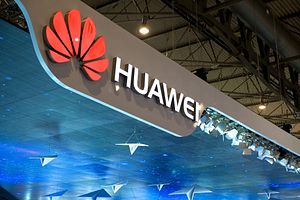Huawei, the world’s largest telecommunications equipment producer, has announced plans to build its first manufacturing plant in Europe. The $225 million production hub, set to be based in France, will create an estimated 500 jobs. The plant, the first outside of China, will first focus on radio equipment for 5G to serve all of continental Europe. Liang Hua, Huawei’s chairman, said “Our group’s activities are worldwide and for this we need a global industrial footprint.”
The announcement of this new plant is but one part in the Chinese telecom giant’s ongoing expansion, with Europe increasingly presented as a 5G battleground. Despite being the site of Huawei’s European plant, the French government has yet to articulate a clear position on the company. Meanwhile, France’s largest mobile operator, Orange, opted to partner with Noki and Ericsson for 5G development. Other French providers, including Bouygues Telecom and SFR, already rely on Huawei, though they have not finalized 5G partnerships.
The United States has sought to convince its allies and partners, particularly in Europe, to be reticent of Huawei over national security concerns. In 2018, top U.S. intelligence officials shared their distrust of both Huawei and ZTE in testimony before the U.S. Senate Foreign Relations Committee. FBI Director Christopher Wray said, “We’re deeply concerned about the risks of allowing any company or entity that is beholden to foreign governments that don’t share our values to gain positions of power inside our telecommunications networks.”
Over the past two years, this suspicion of Huawei has grown. In May 2019, the U.S. government added Huawei to an Entity List, which effectively banned the company from purchasing components and parts from American firms. Earlier this year, after the U.K. agreed to let Huawei bid for a limited role in the country’s 5G development, U.S. Secretary of State Mike Pompeo echoed claims that Huawei products and networks provide the Chinese government with a “backdoor” that could be used for espionage. “Our view of Huawei has been that putting it in your system creates real risk. This is an extension – an extension of the Chinese Communist Party with a legal requirement to hand over information to the Chinese Communist Party,” Pompeo said to reporters while in London. Last month while in Lisbon, the U.S. deputy assistant secretary for cyber, international communications and information policy at the State Department encouraged European officials to pursue 5G deals with Ericsson, Nokia, or Samsung, presenting them as on par with Huawei in terms of advanced technology, without the security risks.
Despite U.S. reservations and pressure, European countries and businesses have not wholesale shunned Huawei’s advances. In addition to the U.K., a number of European countries have opted to let Huawei compete for 5G contracts. For example, Huawei won contracts with providers in Hungary and Spain to build part of their future wireless networks. Germany, the Netherlands, and Portugal are among member states that have expressed that Huawei can bid for their 5G development, but that all firms would be subject to EU and national regulations.
In addition to extensive advertising campaigns in Europe, Huawei participated in a public, live-streamed debate in October 2019 in the European Parliament to boost transparency and convince member states. Still, the EU issued details earlier this year about its tools to secure 5G networks to protect its economy and citizens, signaling to member states they should better coordinate their cybersecurity approaches. The European Union and the U.K. appear to have adopted the notion that they can implement measures to mitigate risk by promoting market diversity with numerous members and avoiding dependence on any vendor deemed high-risk. And yet, debate remains on how to reconcile the benefits and shortcomings of doing business with Huawei moving forward.
This debate also knows no geographic bounds. Countries in other regions — in Africa, Asia, and Latin America — will need to make their own assessments of how to weigh their capacity to mitigate risks from Huawei partnership with the gains of upgrading to a 5G economy.
































